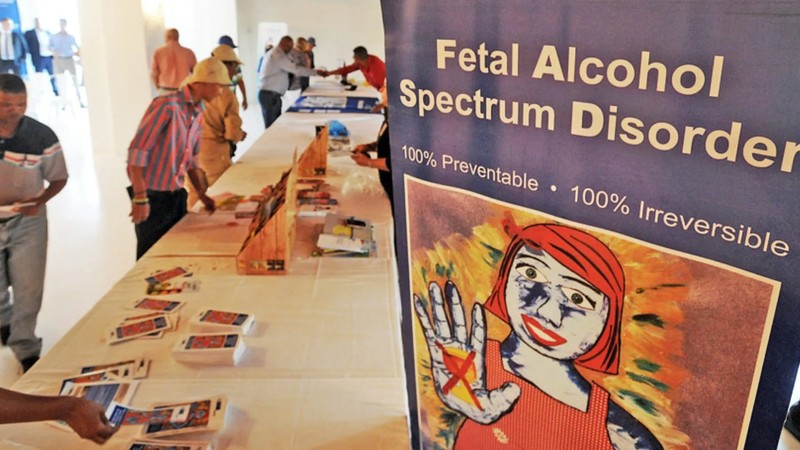It is an alarming truth: while much attention has been paid to the role of maternal drinking in the development of foetal alcohol spectrum disorder (FASD), a newly unveiled dimension of risk is emerging from the shadows. Recent research has established that fathers, too, play a pivotal role in the growth and development of their children, particularly when it comes to alcohol consumption during the prenatal period.
A team of international researchers, including esteemed contributors from Stellenbosch University (SU), has found evidence suggesting that a father’s drinking habits could lead to detrimental impacts on a child’s growth by the time they reach the age of seven. Their findings, published in the journal Alcohol: Clinical & Experimental Research, underscore the importance of recognising that a father’s alcohol use can contribute to the harm caused by a mother’s drinking during pregnancy.
The research team analysed data from five studies examining the prevalence and characteristics of FASD among Grade 1 learners in the Western Cape. The insights were drawn from questionnaires completed by the children’s biological mothers or legal guardians, detailing various risk factors for FASD.
As the researchers delved into their findings, they highlighted a significant shift in understanding the factors affecting children’s development. “There is a growing recognition that factors beyond pregnant women’s drinking habits can affect their children’s development,” they noted, emphasising the independent role fathers may play in influencing a child’s future.
“Our findings show that children whose fathers drank alcohol were more likely to be shorter, have smaller heads, and score lower on verbal IQ tests,” the researchers added. The data revealed that the highest risk to a child’s development existed when both parents engaged in alcohol use during pregnancy. Particularly troubling was the revelation that ‘binge drinking’—especially by both parents—showed the most severe effects on a child’s developmental outcomes.
An astounding 66% to 77% of fathers of children diagnosed with FASD reported consuming alcohol during their partner’s pregnancy, averaging about 12 drinks on each drinking day. Interestingly, there was a direct correlation: the number of alcoholic drinks consumed by fathers was significantly connected to smaller head circumferences in their children, a critical measure of brain development.
The study further revealed that fathers who consumed five or more drinks on an average day had children who exhibited both reduced height and smaller head sizes, coupled with lower performance in verbal intelligence assessments. “The more fathers drank, the worse their children performed,” the researchers noted. Importantly, this correlation was observed even when accounting for the alcohol consumption of mothers during pregnancy.
However, it is essential to clarify that while a father’s drinking habits didn’t independently increase the chances of a child being diagnosed with FASD, the combination of maternal consumption and paternal heavy drinking heightened the risk for more severe symptoms of the disorder. “In essence, while the mother’s alcoholism was the primary determinant of physical and cognitive development issues, the father’s influence cannot be entirely disregarded,” the researchers stated.
Despite the alarming data, the researchers also noted that further study is needed to comprehend the underlying mechanisms of how paternal drinking affects child development—whether through impaired sperm quality or other epigenetic influences, which involve changes in gene function that do not alter the DNA code itself.
As awareness grows, the need for comprehensive strategies addressing alcohol use among both parents is crucial in mitigating risks associated with FASD and fostering better outcomes for children. The findings serve as a clarion call for combined responsibility between parents in safeguarding their children’s developmental health.
